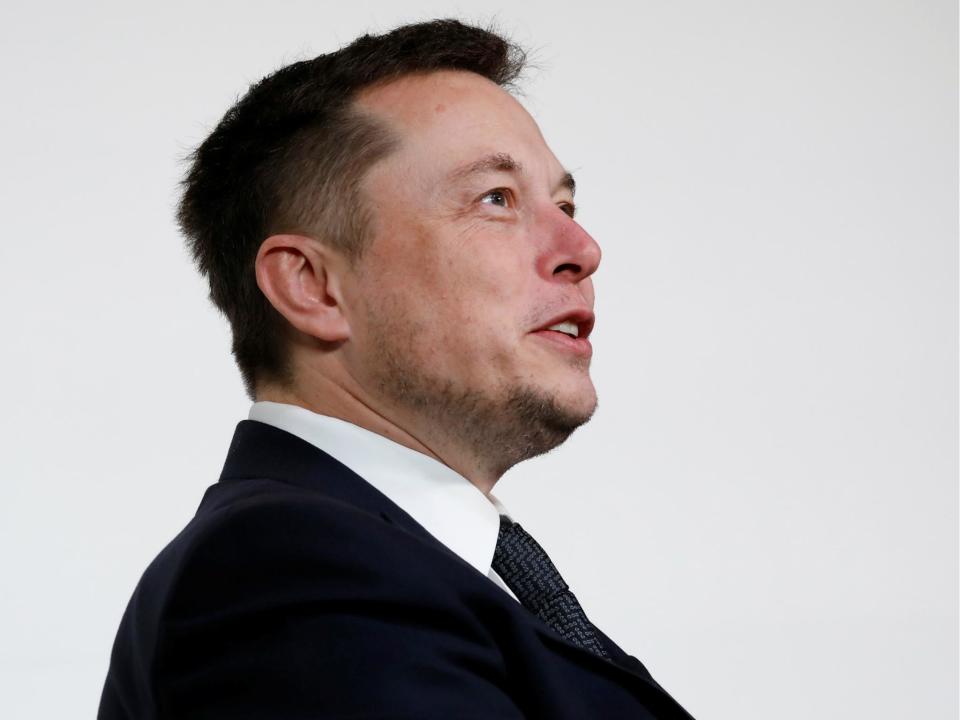Elon Musk is right to criticise journalists’ news values – here’s why
Are journalists innumerate? Elon Musk and Steven Pinker think so. A range of news outlets reported earlier this month that one of Musk’s Tesla cars, in “autopilot” mode, had crashed into the back of a fire engine in Utah at 60mph.
The vehicle’s technology apparently failed to prevent the collision, as it ought to have. Thankfully, no one was seriously hurt, although the driver broke her ankle.
Musk took to Twitter to vent his frustration at the fact that what he regarded as a minor traffic accident had been considered “news”.
“It’s super messed up that a Tesla crash resulting in a broken ankle is front page news and the 40,000 people who died gadgets in US auto accidents alone in past year get almost no coverage,” he grumbled.
The popular Harvard psychologist Steven Pinker has endorsed this, tweeting: “Elon Musk is absolutely right about this. Journalistic innumeracy is damaging in many ways, and editors should put an end to it.”
In some ways Musk is talking nonsense, and self-serving nonsense at that. Driverless vehicle technology is consistently presented as one of the revolutionary innovations that will transform our lives in the coming decades, not least by Elon Musk.
It’s super messed up that a Tesla crash resulting in a broken ankle is front page news and the ~40,000 people who died in US auto accidents alone in past year get almost no coverage https://t.co/6gD8MzD6VU
— Elon Musk (@elonmusk) May 14, 2018
But will it be a beneficial revolution? Putting one’s life in the hands of a fast-moving machine feels risky and people naturally want to know if it is actually safe or not. That will be determined by the reliability of the kind of sensors used in Tesla’s autopilot technology. The idea that the media were excited by the Utah crash because of a broken ankle rather than the apparent failure of the technology is obtuseness squared from Musk.
And then there’s the self-serving element. Tesla, and Musk’s other projects, as my colleague Jim Moore has pointed out, have benefited hugely from obsessive media coverage and a lot of hype. To lap up all that free publicity when it’s commercially useful but then to complain about the massive media interest when it’s more problematic is hypocrisy squared.
As for news values, as the old saying goes “dog bites man” is not a news story, whereas “man bites dog” is. Those multiple daily car crashes are not news precisely because, as Musk notes, they are so common. Crashes by driverless (or autopilot) cars are news because they are so rare.
All that said, the thrust of the Musk/Pinker critique has some validity. The media’s obsession with “man bites dog” stories can distort the public’s sense of risk. As the behavioural economist and psychologist Daniel Kahneman has documented, we are all prone to recall what comes easily to mind (the “availability heuristic”) when making judgements about danger.
Because plane crashes get far more coverage in the media than car crashes, many people wrongly assume air travel is far more hazardous than driving. In fact, the fatal accident rate for large commercial airlines is one for every 16 million flights. Last year was the safest for aviation on record.
The automobile, on the other hand, as John Thornhill of the Financial Times has pointed out, has a claim to be the most deadly human invention ever, with around 1.25 million road traffic deaths a year globally. Musk is right to suggest that this is the correct statistical context in which to view the development – and indeed the risks – of driverless technology.
The media has a proven ability to create “availability cascades”, creating panics and scares based on not very much. Think of the News of the World’s notorious “name and shame” paedophile campaign in 2003, which gave the impression that there was a child molester on every street and prompted mobs to attack innocent people.
Consider Donald Trump’s recent claim that London is “like a war zone”. Does media coverage of the recent spike in youth violence in the capital – in particular, the failure to put the deaths in the appropriate statistical context – help to stoke that kind of malevolent hysteria? Think of the recent ubiquitous claim that London has a higher murder rate than New York.
There’s also reason to believe skewed media coverage tears at the social fabric. Surveys suggest British people think a fifth of the UK populations are Muslims, when the true figure is 5 per cent. We think a quarter of the population are immigrants, when the actual figure is around 14 per cent. Those grossly distorted perceptions are due to distorted media coverage – and not just from the shameless right-wing propaganda corp.
Pinker claims in his recent book, Enlightenment Now, that too little attention is given by the media to the major global health advances of recent decades, such as falls in childhood mortality and rising longevity, and that this omission contributes to an unwarranted sense of demoralisation. His overall case is overstated and flawed in some respects, but he’s right to claim that a sense of balance is often lost.
Should Tesla’s Utah crash be considered news? Yes. Should journalists think more carefully about statistics and consider whether their news values in general are sound and genuinely serve the public interest? Also, yes.
Journalists on autopilot have done far more damage than Teslas.

 Yahoo News
Yahoo News 

